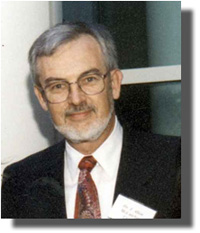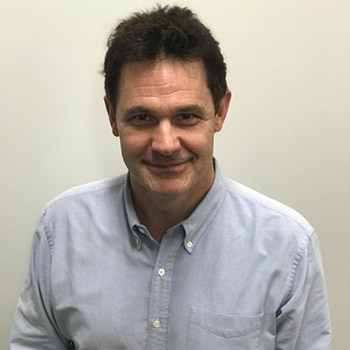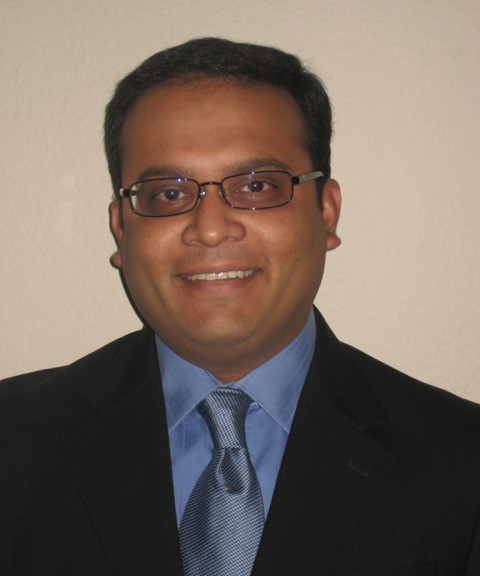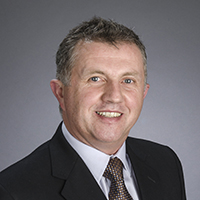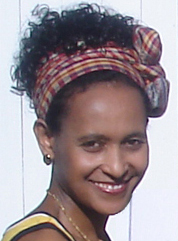Clinical Research Enhancement through Supplemental Training (CREST) Program
A career in clinical research increasingly requires high levels of preparation, training, and commitment similar to a career in laboratory-based research. While it is common for physicians/scientists to dedicate several years of focused effort to master the techniques and strategies required for productive careers in laboratory research, individuals embarking on a career in clinical investigation only recently have had a similar opportunity to develop their skills. This disparity is representative of the lack of structured training programs in clinical research. Recognizing this lack, the NIH has developed the K series of grants. These grants enhance development of investigators with specialized clinical and laboratory skills to use rigorous methods to address research questions with human populations. UCSD has incorporated these concepts in the design of the CREST program, under the direction of Ravindra Mehta, MD.
About
The main features of the program design are as follows.
Integrated Design for State-of-the-Art Training
Three characteristics common to successful training, whether it be in clinical or laboratory research, are: 1) training in research methods applicable to the area of investigation, 2) application of these methods to a state-of-the-art research question, and 3) collaboration with more experienced investigators. Well-trained laboratory researchers benefit from all three training components. Research mentors provide a laboratory environment for instruction in research methods, which the trainee uses in a specific project while also interacting with other investigators in the field. Similarly, experienced clinician investigators utilize the clinic or hospital as a "laboratory" for their research. It is more difficult for clinical researchers to control the "laboratory" environment and provide comprehensive training. We have designed the CREST program to integrate the three components described above. The program requires the scholar to have an independent research project, provides the didactic and practical training required in the methods of clinical research, and creates an environment for the scholar to learn from a multidisciplinary faculty who provide individualized guidance for career development.
Broad-based Curriculum Encompassing Major Areas of Clinical Research
As clinical research is often multidisciplinary and multifaceted, a curriculum for instruction should be representative of the different components of clinical research, as defined by the NIH. Taking this into account we have incorporated all major elements of clinical research in the design of the curriculum. The curriculum is designed with courses given over two years. It is comprised of eight modules which cover the principles of epidemiology, biostatistics, patient-oriented research (two modules each), health services/outcomes research, and data management/informatics (one module each). We believe that the CREST scholar must not only have a strong basis in academic medicine, but must understand the bioscience/biotechnology to be an effective researcher. Consequently, we include professional development seminars that are offered throughout the two years and focused on key elements including grant writing, scientific communication, research management and time management.
Components of CREST Program Curriculum

Each module is given over one academic quarter and is comprised of 10 weekly, 2-hour periods of instruction in the early evening. The format for instruction includes a combination of didactic lectures, group discussions, and hands-on computer-based training. Once-a-week evening classes allow the scholar to focus on his/her primary research and training project without disrupting clinical responsibilities during the major part of the work week. For individuals interested in completing the CREST curriculum in a shorter time period, a one year option is available. This requires both the first and second year courses be taken concurrently on two nights a week (Wednesday and Thursday) e.g. year 1 course on Wednesday and year 2 course on Thursday. However, the sessions must begin with Summer session in July.
Targeted Participants with Track System for Enrollment
The program is primarily directed towards postdoctoral candidates with a M.D. or Ph.D. degree interested in pursuing a career in clinical investigation or translational research. Potential applicants will have a primary research training focus either in basic science or in clinical research. Scholars are recruited from many departments and disciplines and range from graduate students working towards a Masters degree to individuals holding junior faculty appointments. Scholars differ in levels of prior training and experience in areas covered by the curriculum, in levels of commitment, and in interests. In order to accommodate the varying needs we have incorporated two mechanisms to permit flexibility while retaining the benefits of structured modular instruction. First, scholars spend the majority of their time working on their primary focus for training as a basic scientist or a clinician investigator. Second, scholars are able to select from two training tracks for participating in the CREST program to supplement their training. Participants are assessed on application to the program for their goals and needs for training in specific areas.
For those with more limited goals, Track I involves a smaller number of modules. For example, fellows whose interest and training focuses on laboratory research may elect to take only the modules involving biostatistics, career development, and ethical and regulatory issues. Those who pursue Track II commit to the entire ten-module, two-year curriculum. Taking all ten modules is equivalent to approximately 20 credits hours. Track II scholars have the option to enroll in the UCSD Masters of Advanced Studies in Clinical Research anytime during the first year of training and can apply the CREST curriculum credits towards the Masters degree.
Career Development
A key feature of the program is that it addresses the continuum of learning experienced by the scholar. In addition to the curriculum, each scholar who enrolls in the MAS program is required to have an individual research project supervised by his or her primary research mentor. In addition, each scholar is paired with a CREST faculty member, who serves as a mentor to assist with their individual research project as well a providing career guidance. The CREST faculty interacts with the primary research mentor to ensure that scholars have the appropriate support and protected time to pursue their goals. In order to assign a CREST mentor to each applicant we require the applicant to complete a pre-course assessment form that provides information on content knowledge, needs and learning styles. These instruments are repeated at periodic intervals to track each applicant's progress through the duration of the training program.
Fees
UCSD residents, fellows, faculty (including laboratory-based fellows) MUST apply through CREST and pay a discounted fee up to 20 credit units. If interested in earning the CREST certificate and/or transferring to the MAS degree program, you must apply for Track II; if interested in individual courses, you should apply for Track I. The cost for staff, residents and fellows is $558 per unit ($1,116 per two-unit course) and for faculty it is $698 per unit ($1,396 per two-unit course). The fee covers the costs for lectures and course materials including books. The fee after completing 20 units and/or transferring to MAS program is $930 PER UNIT ($1,860 per two-unit course)!
Non-UCSD folks (coming from industry or other academic institutions) must apply through MAS program and pay the regular course fee; i.e., $930 per unit ($1,860 per two-unit course) plus the registration fee. Details of the Master’s Degree program and fees can be found at the MAS web site: https://clre.ucsd.edu.
Curriculum
Click Here, For a details description of the Curriculum.
Prospective Students
Intended Audience:
CREST is targeted to fellows, junior faculty, Pharm.D, faculty members, and research associates interested in receiving supplemental training in clinical and translational research. We accept researchers from all disciplines, particularly physicians enrolled in fellowship training or starting their academic career.
CREST also accepts UCSD staff with prior experience in clinical medicine (e.g. clinical research nurses, research associates) as concurrent students.
Admissions:
Applicants must read and understand the descriptions and objectives of the courses, review the course start and end dates, and review the overall program goals. Applicants must also agree to commit to attending at least 70% of the classes for each course, and completing the majority of the homework.
To apply for CREST (Clinical Research Enhancement through Supplemental Training), candidates will need to complete and submit the online CREST Program application.
The following must also be included: Required Supplemental Documents For All Applicants:
-
Statement of Purpose: please explain your specific research interests and goals, your individual strengths and what makes you a good candidate for this program, why you want to be in the program, and how it will assist you in achieving your career goals.
-
Three Letters of Recommendation: recommendation letters must come from the recommender not the applicant. Choose recommences who know your skills and abilities, and can speak to why you are a good candidate for the program.
-
Unofficial copies of academic records: if your educational background is not MD, a copy of all undergraduate and graduate courses work/transcripts must accompany your submission. You could upload it with your application or email it as attachment schernet@ucsd.edu
-
Current resume or C.V.
Application procedures:
"Track System" to permits flexibility and accommodate the varying needs:
Track I:
- Take only selected Courses.
- Track I will be placed on a waiting list (first come-first serve) until administering Track II (the certificate/degree students). Enrollment is based on space availability.
Track II:
- Complete CREST curriculum and earn Advanced Certificate in Clinical Research
- Transfer to the Masters of Advanced Studies in Clinical Research Degree Program during the first year of training and apply the CREST curriculum credits towards the Masters degree.
- Could enter in summer (July) quarter.
Your application will be reviewed by admission committee. After your application has been reviewed we will contact you. If you have any questions before then, please contact the CREST office (858-534-9163 or schernet@ucsd.edu).
For those who are interested in the Masters of Advanced Studies in Clinical Research degree after completing 20 units of CREST Curriculum, details can be found at http://clre.ucsd.edu.
Financial Matters:
- Postdoctoral Fellows, Residents, Fellows, and Staff: $558/unit ($1,116/2 unit course)
- Faculty: $698/unit ($1,396/2 unit course)
- Non-UCSD Employees: $930/unit ($1,860/2 unit course) (enrollment through the MAS Degree Program)
The fee covers the costs for lectures and course materials including books.
For information about CREST Program payment, please contact Seble Chernet at schernet@ucsd.edu.
If interested in transferring to the degree program after completing 20 units with discounted fee through CREST Program, please visit the Masters Degree program website.
Program Format:
Broad-based curriculum encompassing major areas of clinical research that:
-
- Can be completed in 1-3 years;
- Are comprised of nine modules which are:
- Given over one academic quarter each
- Each course is designed to be given over one academic quarter and is comprised of 10 weekly, 2-hour periods of instruction which are given in the early evening (4-6). The regularly scheduled core classes are typically held from 4-6 pm on Wednesdays and Thursdays at UCSD La Jolla Campus.
- Seminar series complement the modules and are given on Monday or Tuesday evenings from 4-7 Pm. Applicants are required to take one (2unit) seminar from Professional Development Series.
In order to accommodate the varying needs, we have incorporated a track system which permits flexibility while retaining structured modular instruction.
- Track I
- Will involve a limited number of modules and is only for those who are interested in attending selected modules; can apply anytime but enrollment is based on space availability.
- Track II
- Will commit to the entire eight module, two-year curriculum and will have receive course credit towards Masters degree in Clinical Research.
- Taking all CREST modules is equivalent to approximately 20 credit units which can be applied towards a Masters degree in Clinical Research. Track II enrollees are required to elect if they plan to apply these credits towards the MAS degree after completing 14-16 credit units in the CREST program.
- Total units required for MAS degree: 40
Pace of Study:
Coursework can be completed in one to two years of study depending upon a participant's time to devote to the program. Students could enter the program in the summer (July) quarter.
Core Courses |
|
Course# |
Unit |
SU |
FA |
||
|
*Epidemiology I |
CLRE-251 |
2 |
X |
|
|||
|
*Epidemiology II |
CLRE-257 |
2 |
|
X |
|||
|
*Patient Oriented Res. I |
CLRE-250 |
2 |
X |
|
|||
|
*Patient Oriented Res. II |
CLRE-256 |
2 |
|
X |
|||
|
*Biostatistics I |
CLRE-253 |
2 |
X |
|
|||
|
*Biostatistics II |
|
CLRE-254 |
2 |
|
X |
||
|
*Health Services Research |
|
CLRE-252 |
2 |
X |
|
||
|
*Data Mgmt. & informatics |
CLRE-255 |
2 |
|
X |
|||
|
*Scientific Communication Skills |
|
CLRE-259 |
2 |
X |
|
||
CREST Certificate Elective: One of the Professional Development Series- below: |
|||||||
|
CREST Certificate Elective |
Course# |
Unit |
SP |
FA |
|||
|
Clinical Research Project Management and Budgeting |
CLRE-258 |
2 |
X |
||||
|
Effective Communication |
CLRE-258 |
2 |
X |
|
|||
Select one additional elective form CLRE-258 series above for certificate.20 Credit Units required for Advanced Certificate in Clinical Research. Additional modules can be taken in either on first or second year. |
|||||||
Current Students
Academic Calendars/Schedule of Classes:
AY: 2025 - 2026
CREST Payment and Registration: Summer 2025 Classes Schedule
SELF PAYMENT
Check/Credit Card Payment |
DEPARTMENT PAYMENT:
Recharge Form |
ONLINE -SELF PAYMENT Istruction |
MS Word |
- Postdoctoral Fellows, Residents, Fellows, and Staff: $558/unit ($1,116/2 unit course)
- Faculty: $698/unit ($1,396/2 unit course)
- Non-UCSD Employees: $930/unit ($1,860/2 unit course) (enrollment through the MAS Degree Program)
The fee covers the costs for lectures and course materials including books.
For information about CREST Program payment, please contact Seble Chernet at schernet@ucsd.edu.
If interested in transferring to the degree program before/after completing 20 units with discounted fee through CREST Program, please visit the Masters Degree program website.
Class Locations:
Click here for map & detailed
Course Website/Canavs Login:
 : Click here to redirect to login page
: Click here to redirect to login page
Request Transcript:- Degree Student- Certificate Student. |
Contact CREST Office:
Email: schernet@ucsd.edu
Contact MAS Office:
Email: clre@ucsd.eduAlumni
CREST AND MAS ALUMNI
|
Our graduates are from a wide range of disciplines, and are diverse with respect to their level of training, primary degree, and background.
|
|
|
|
|
|
|
What Alumni Have To Say About the Program: |
||
|
Couldn’t have done it without crest!!!!! Outstanding program, format and mentorship. I wrote the first grant, but as i was only a fellow, the pi was my mentor. I now feel poised to be my own pi on my own grant and am actively pursuing several avenues. Mimi Lukacz, MD, MAS |
 |
|
|
Great overview of clinical research - both investigator initiated and as part of collaborative studies. This also gives clinical researchers an opportunity to meet investigators from different departments at UCSD, which allows future collaboration. Overall a great learning experience. Thomas Savides, MD, MAS |
 |
|
|
This program has opened many doors for me. The skills gained in grant writing, protocol writing, program management strategy, and outcomes identification have given me the unique opportunity to develop, implement, and evaluate new programs in the nursing department. Margaret B. (Scotti) Grant, RN,MAS |
||
|
The CREST and Masters in Advanced Studies programs really gave me the tools to understand clinical research design and implementation. During the program, Edward Mariano, MD, MAS |
 |
|
|
In learning the basics and process of clinical research, I understand what is undertaken when I read the literature in my field of medicine. Also, I feel more powerful when deciphering study design and statistical analysis as it pertains to results/conclusions that are published. I am more able to evaluate which studies I should pay attention to and which to ignore. Anushirvan Minokadeh, MD, MAS |
||
|
It has helped me become successful in my role in the medical device industry and has played a critical role in my career advancement. It has empowered me to be able to provide feedback in areas of Clinical Research and Post-market studies, to review abstracts/protocols etc and has sure prepared me for the real life experience. Khaudeja Bano, M.B.B.S, MAS |
 |
|
|
It gave me a foundation on clinical research, allowing me to have a solid training in clinical research methodologies, which is crucial as a clinical investigator. Jeffrey Lee, MD, MAS |
||
|
CREST/MAS Program gave me excellent understanding of the Clinical Research process, including how to construct a protocol, understanding of regulatory requirements, bias, statistical assessments, etc. It has served me well in my medical affairs roles (mostly phase IV studies), and with my ability to assist with design and implementation of phase 3 studies. It has improved my ability to design and write meaningful clinical research. Ted Okerson, MD, FACP, MAS |
 |
|
|
I have not yet had a chance to start my own clinical research but I feel prepared in supervising the residents that I work with as well as moving toward starting my own research projects. Michelle Loose, MD, MAS |
 |
|
|
It gave me a thorough understanding of the basic terminologies, procedures, and sciences involved in conducting clinical research. Othman Mohammad, MD |
||
|
An understanding of the different components of clinical research. The most valuable area was to meet senior researchers and to have those individuals mentor me in future projects. Adriana Tremoulet, MD, MAS |
 |
|
|
I am looking towards transferring from preclinical bench research to clinical research and this program has given me helpful insight into what monitoring a clinical trial entails. From budget and protocol preparation, to budget negotiation, data analysis techniques, data management and FDA audits, this program has given me a solid foundation from which to initiate a career in the clinical research arena. Christiane A Villescaz, MAS |
||
|
The CREST program gave me a solid foundation for conducting patient-oriented clinical research and skills on describing the research methods and data analysis. These skills are crucial for me as I am getting ready for my first academic appointment. Milena Weinstein, MD,MAS |
 |
|
|
The Program helped me get a holistic view of the research process, an ability to analyze data using biostatistics, a greater ability to read and understand scientific papers, and time to pursue my own research endeavors. Alexander Ko, MD, MAS |
||
|
The program gave me an introduction to the basics of research methodology. Prasanthi Ramanujam, MD, MAS |
 |
|
|
Definitely gave me more confidence in my ability to design studies. Clarified many points for me. I’d taken courses on study design many years ago and this consolidated all the information. The very most useful one was Dr. Lindsay’s Epidemiology class. Ann Sturley, RN, MAS |
|
|
|
The CREST Program gave me the capacity to better understand the major players in clinical and translational research and patient-centered studies; discuss the most recent advances and relevant statistical and methodological tools for effective and efficient design and conduct of clinical studies that are practice and community based; and to promote new avenues of investigation, the development of new approaches and techniques in translational and patient-centered research in my area of research interest which is nephrology. Rolando Claure Del Granado, MD, MAS |
 |
|
Contact Us
ACTRI CREST
CREST Faculty and Staff |
Contact Information |
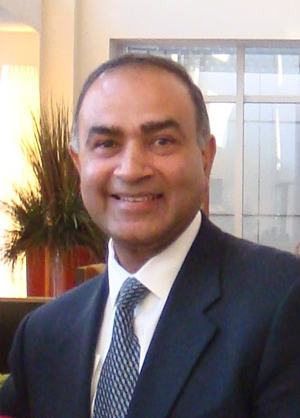 |
Ravi Mehta, MDProgram DirectorUCSD Medical Centerrmehta@ucsd.eduPhone: (858) 246-2134 |
|
|
Allen McCutchan, MDAssociate Program DirectorUCSD Medical Centeramccutchan@ucsd.eduPhone: (619) 543-5052 |
|
|
Sheldon Morris, MD, MPHCourse Director - Patient Oriented Research I & II,
|
|
|
Richard Calvo, PhDCourse Director - Epidemiology I & IIrycalvo@health.ucsd.edu |
|
|
Raphael Cuomo, PhD, MPH, CPH, FRSPHCourse Director - Data Management and Informatics,
|
|
|
Hemal H. Patel, MD, PhDDirector, Scientific Communication Courseshepatel@ucsd.eduPhone: (858) 534-4906 |
|
|
Florin Vaida, PhDDirector, Biostatistics Coursesfvaida@ucsd.eduPhone: (619) 543-8045 |
|
|
Seble W. ChernetCREST Program ManagerUniversity of California, San Diego
|
FAQ
- Who can apply?
- If I am not with UCSD or UCSD affiliate, can I still apply to the program?
- How do I apply to the program?
- What are the admission requirements for CREST?
- What are the admissions requirements for the MAS degree program?
- When is the deadline for submitting the application?
- Where do I send my application?
- Could I register for the MAS degree program after completing the all the 2-year CREST courses?
- How long does it take to complete the CREST program?
- How many credit units are needed to earn the MAS degree?
- How much does it cost?
Who can apply?
Any doctoral candidates, postdoctoral fellows, or junior faculty who are pursuing a career in clinical or translational research can apply. Members of UCSD and its affiliates (UCSD staff, fellows, faculty, junior faculty, VA, Children's Hospital), apply through CREST.
If I am not with UCSD or a UCSD affiliate, can I still apply to the program?
Yes, you are eligible to apply through the Masters of Advanced Studies in Clinical Research degree program.
Details of the Masters Degree program and fees can be found at http://clre.ucsd.edu/.
What are the admissions requirements for the CREST program?
Those interested in applying are encouraged to visit the CREST website, read and understand the descriptions and objectives of the courses they are interested in, review the course start and end dates, and review the overall program goals. For more information on admission, please visit the Prospective Students page. Applicants must agree to commit to attending at least 70% of the classes for each course, and completing the majority of the homework. By the end of their first year in the CREST program, students must decide if they would like to apply for the MAS Program.
What are the admissions requirements for the Masters of Advanced Studies (MAS) in Clinical Research degree program?
Full- time UCSD Employee or Affiliate (employed by UCSD or affiliates like Rady Children’s Hosp., VA, etc) will apply through the CREST program (Track 2 – transferring to the MAS degree program after 20 units) and enjoy the discounted course fee instead of paying full MAS fee ($930/unit). UCSD Fellows/Research Staff pay $558/unit and faculty pay $698/unit through CREST UP TO the first 20 units of the curriculum (40 total for the degree). The CREST and MAS curriculum are identical up to 20 units.
How do I apply?
UCSD and affiliates: UCSD fellows, faculty, junior faculty, VA, Children's Hospital should submit:
-
Agreement letter of primary supervisor (signed)
-
Resume or Curriculum vitae
-
Statement of Purpose
-
Letters of Recommendation (3)
Non-UCSD affiliates: please visit http://clre.ucsd.edu/ for detailed instructions on applying for the Masters of Advanced Studies in Clinical Research program.
Where do I send my application?
UCSD and affiliates: Submit CREST Program Application online. Required documents can be sent to:
CREST Program Office
University of California, San Diego
9500 Gilman Drive, Mail Code 0170X
La Jolla, CA 92093-0170X
schernet@ucsd.edu
Non-UCSD affiliates: See information at http://clre.ucsd.edu/.
CREST program application deadlines
The registration deadlines is April 30 for the July session.
Track II students:
- Get Advanced Certificate in Clinical Research once completed the 20 unit
- Continue for Master's Degree in Clinical Research
Track I students:
- Enroll in individual courses
- Enrollment is on a space available basis i.e. will be placed on a waiting list (first come-first serve) until administering the certificate/degree students.
- Can't get Advanced Certificate in Clinical Research or continue for Master's Degree in Clinical Research.
If there are more applicants than can be accommodated for a given course, the Program Director and Co-Directors will determine which applicants will be accepted. Admission will be based on affiliation (preference given to UCSD/VA/Children's Hospital affiliates), level (preference given to fellows), expected benefit of the program to the individual (as determined by factors such as type of research and previous research experience), and date of submission of application.
Could I register for the MAS degree program after completing all of the entire 2-year CREST courses?
No, you must decide after completing 14-16 units and/or prior to completing the 20 units (must enroll as Track II) if you are going to enroll in the degree program.
How long does it take to complete the CREST program?
The CREST Program consists of 20 credit units of study. Coursework can be completed in 12 to 24 months of study, depending upon a participant's time to devote to the program. Students must enter the program in the summer (July) to complete the certificate program in 12 months.
How many credit units are needed to earn the MAS degree?
The master's degree in Clinical Research consists of 40 credit units of study. Coursework can be completed in 18 to 30 months of study, depending upon a participant's time to devote to the program. Students enter the program in summer (July) to complete the degree program in 18 months.
If I apply for the MAS degree program but then decide to leave after completing the second year, can I still receive a certificate for completing the CREST program?
Yes, you'll receive a certificate if you've completed the 20 credit units of study and passed the comprehensive exam.
How much does CREST cost?
All UCSD residents, fellows (including laboratory-based fellows), and faculty pay a discounted fee: The fee for UCSD residents and fellows is $1,116 per 2 unit course ($558/unit). The fee for UCSD faculty is $1,396 per 2 unit course ($698/unit). The fee for Non-UCSD affiliates is $1,860 per 2 unit course ($930/unit) The fee covers the costs for all lectures and course materials and books.
For those who are interested in the Master of Advanced Studies in Clinical Research degree, there will be additional university fees for each quarter of enrollment. Details of the Masters Degree program and fees can be found here.



